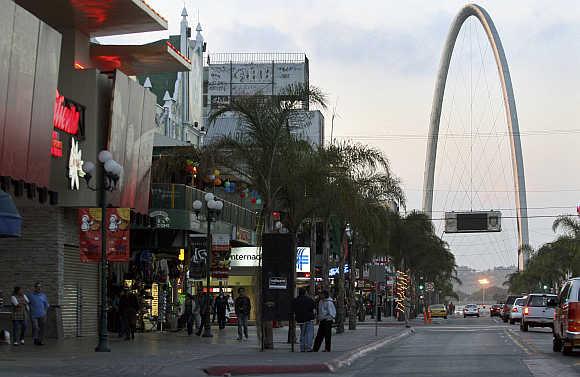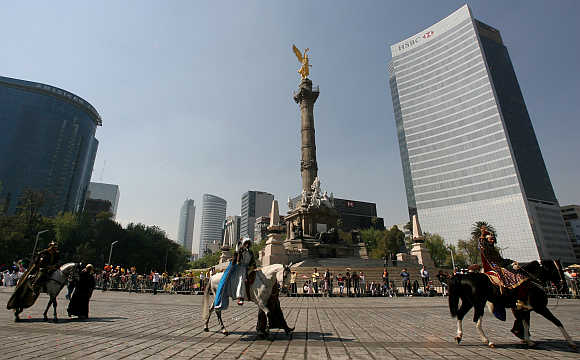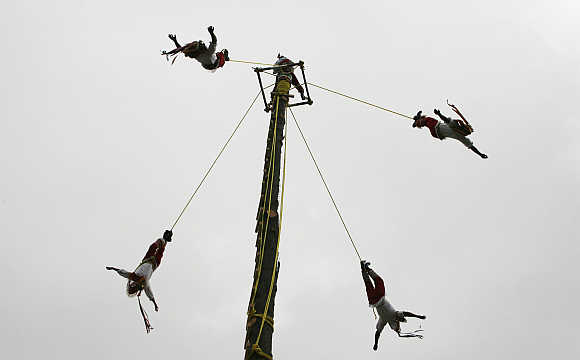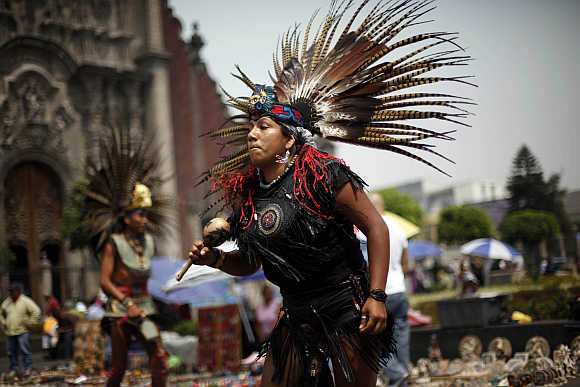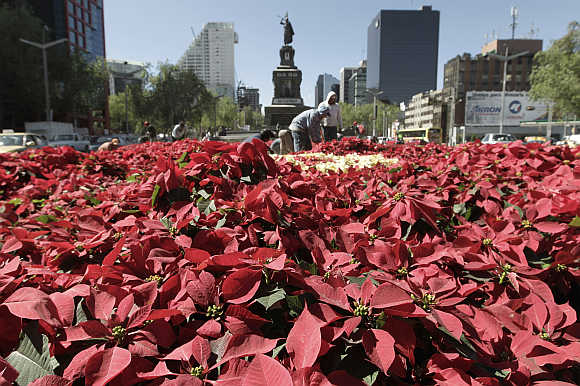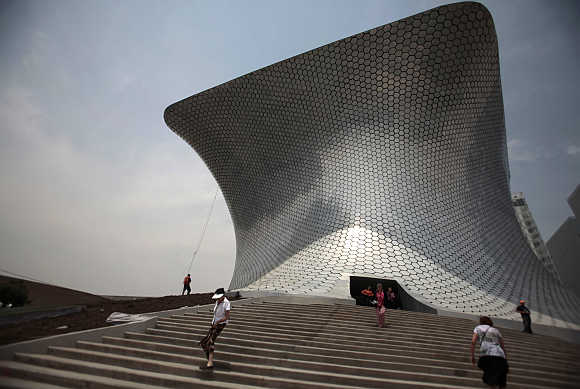 | « Back to article | Print this article |
Mexico next breakout nation, says Kenneth Rogoff
Mexico is moving away from dependence on oil revenue, and is positioned to be the next breakout nation, says Kenneth Rogoff, Professor of Economics, Harvard University.
For a glimpse of the average American's understanding of the relationship between the United States and Mexico, one only has to watch the critically acclaimed television series Breaking Bad.
Set in Albuquerque, New Mexico, a few hundred miles from the border, the series chronicles the rise and fall of Walter White, a high school chemistry teacher who becomes a methamphetamine tycoon.
Most of the characters on the US side of the border are portrayed with sympathy and depth. The main protagonist's step-by-step descent into the drug underworld unfolds with such subtlety that each individual decision he makes along the way seems almost reasonable.
Click NEXT to read more...
Mexico next breakout nation, says Kenneth Rogoff
Unfortunately, the other side of the border receives more superficial treatment. In one scene, two Mexican hit men ruthlessly slaughter a dozen innocent compatriots who could bear witness to their border crossing.
In another episode, members of the Mexican Federal Police are seen assaulting a drug lord in his hacienda, with the implication that they are only doing the bidding of a rival dealer.
Breaking Bad is brilliant television, but it is regrettable that so many Americans see only this side of things. Mexico has profound security problems in some regions, but it is also a country that just might be on the threshold of a huge political and economic transformation.
Click NEXT to read more...
Mexico next breakout nation, says Kenneth Rogoff
Indeed, for a couple of years now, Mexico's GDP growth rates have been near the top of those for the Organisation for Economic Co-operation and Development, and recently above Brazil's.
Rather than continue fighting (as in the US) after a heated presidential election, Mexico's major political parties appear poised to co-operate on a number of critical structural reforms that could energise economic growth for decades to come.
The agenda includes an expansion of the tax base to reduce dependency on oil, an initiative to increase competition in media and telecommunications, and a constitutional change that will permit the state-owned oil company Pemex to enter into joint ventures with foreign firms.
Click NEXT to read more...
Mexico next breakout nation, says Kenneth Rogoff
This last reform is critical, because much of Mexico's geology is very similar to that of the southwestern US. In principle, Mexico's economy should be benefiting from the same shale gas revolution that is providing a huge boost to the US, where natural gas prices are now less than one-quarter of what Europeans pay.
Mexico is already enjoying a manufacturing boom that has increased its exports to the US, following a long secular decline. With China's wages soaring and rising oil prices driving up shipping costs, production in Mexico is suddenly looking much more attractive, even taking security concerns into account.
Of course, any number of things can go wrong. First and foremost, the political elite might suddenly back away from essential structural reforms, and the Mexican business community's current optimism could collapse.
Click NEXT to read more...
Mexico next breakout nation, says Kenneth Rogoff
It wouldn't be the first time. There is also a risk that foreign investors, who already are starting to like Mexico, might come to love it a little too much.
A huge influx of capital could lead to a significant appreciation of the peso's exchange rate, causing an increase in Mexico's currently very attractive labour costs. Or the US could slip into recession (though modest growth is certainly the central scenario nowadays).
Then there is the matter of security, which constitutes a huge tax on business in many parts of Mexico. For example, one important achievement of former President Felipe Calderon's administration was to push through a 140-mile highway connecting the interior city of Durango and the Pacific port at Mazatlan.
Click NEXT to read more...
Mexico next breakout nation, says Kenneth Rogoff
Traversing extremely rough terrain with 200 tunnels and bridges, it promises to cut the transit time by three or four hours. Except for the weather, the highway has the feel of Switzerland.
But the new road has raised concerns, particularly in the US, that it could serve as a smuggling route for drugs and weapons, so the military feels obliged to set up checkpoints. Unfortunately, early anecdotal evidence suggests that these safeguards may ultimately slow down traffic by roughly the same amount of time that the project was meant to speed it up!
Mexican leaders acknowledge the country's internal problems, but place three of them at America's doorstep.
Click NEXT to read more...
Mexico next breakout nation, says Kenneth Rogoff
First and foremost, the US generates the huge demand for illicit drugs that sustains the entire Latin American mafia, just as the US experiment with alcohol prohibition in the 1920s fuelled the rise of gangsters like Al Capone.
No one knows precisely the Mexican drug cartels' annual profits, but they certainly amount to billions of dollars. Second, the US, with its incredibly lax restrictions on gun purchases, serves as a veritable arms depot for rich Mexican drug lords.
True, they could arguably acquire similar weapons elsewhere, but not necessarily as cheaply and conveniently.
Click NEXT to read more...
Mexico next breakout nation, says Kenneth Rogoff
Finally, the US could do more to curtail money laundering. One simple step would be to restrict the circulation of $100 bills, which are mostly used in the underground economy.
Many of the problems that characterise the complex US-Mexican relationship will be ameliorated if Mexico can sustain rapid economic growth. Net immigration to the US, which has already tapered off, might reverse. The US stands to benefit as much as Mexico if conditions south of the border begin breaking good.
The writer, a former chief economist of the IMF, is professor of Economics and Public Policy at Harvard University. Project Syndicate, 2013
